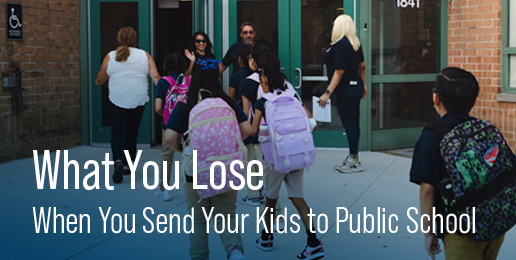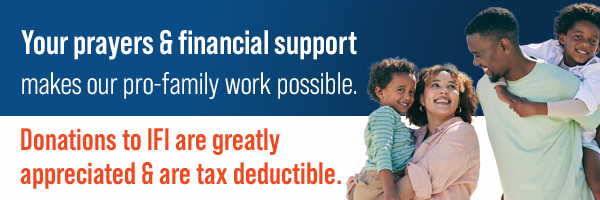
Illinois wants to make home schooling difficult. Illinois State Representative Terra Costa-Howard (D-Lombard) introduced HB 2827 in the Illinois General Assembly in February. Among other things, the Homeschool Act would require home-school families to register and give the state Board of Education power to demand more information or impose further restrictions without the legislature.
Despite over 50,000 witness slips and six to eight thousand families showing up in opposition, HB 2827 passed committee. Sponsors say HB 2827 is about safety and ensuring all children receive the best education, but really, it’s a divide over who owns children: parents, or the government.
Home-schoolers are used to this. The Never-Ending War on Home Schooling, an article written by Matthew Hennessey and published by the Wall Street Journal, said public tragedies are often used to paint home schooling as a danger.
Hennessey said,
“the claim is always the same: Home schooling enables abuse by removing children from the protective gaze of teachers, administrators, coaches and the broader community. Why would parents pull their kids out of a traditional school environment if not to indoctrinate or abuse them?”
Some parents have used home schooling as an excuse for negligence or abuse, but more governmental regulation is not the answer. If lawmakers were genuinely concerned for the education and safety of kids, they would be securitizing public schools, not home-schools.
Only 39% of Illinois public school students are proficient readers; 29% are proficient in math. A report commissioned by the U.S. Department of Education found about 10% of students are victims of sexual misconduct in schools.
Recently, a school in Deerfield Illinois sent adults into the girls locker room to force girls to change in front of a boy who claimed to identify as a girl.
Jennifer Burns, founder of Classical Consortium Academy and H.E.A.R.T, academic director for Turning Point Academy and home schooling mother of 22 years, said,
“When I look at the Nation’s Report Card, you’ve got people who can’t read, can’t do basic math. …all of us, need to make sure that all of our kids are well-educated. But parents want better for their kids in general, and so I would say that the homeschooling movement is doing far better at educating students than our counterparts in public school.”
Data supports this. A study published in the International Journal of Business and Social Research titled, A Comparison of the Academic Achievement of Home School and Public School Students, said,
“Most studies indicate that the students educated at home perform as well as or better than their peers in conventional schools on standardized achievement tests.”
Home schooling offers opportunities for kids to learn to disagree and debate in a healthy way. Many home-schoolers are involved in debate groups or gavel clubs, and apologetics is part of many home-school curricula.
Burns said she knew a public school student who was harassed by his teacher and peers for asking about the life of an unborn baby while his English class was talking about abortion.
“[public schools are] not safe places to argue in the, and in the ancient sense of the word, right?” she said. “That you and I can dialog and maybe we disagree on something, and we get together, we get closer to the truth. That’s not what’s being fostered in in public school.”
Home-schoolers have time and opportunity to learn in unique ways and foster the individual talents God gives.
Carol Sisson, assistant professor of education and director of the Orphans and Vulnerable Children program at Taylor University, said her family would finish their fall semester curriculum by December. They continued learning through crafts, Christmas-themed literature and cooking.
Julie Hostetler, a former public school teacher and current home-school mom, said,
“[home schooling] gave our family freedom to actually go and experience and like do field trips and do the experiments and the hands-on.”
Home schooling teaches kids how to socialize with people of all age groups. Sisson said many home-schoolers are involved in programs for the whole family. Students have to learn how to get along with people much younger and much older than them.
“Home-schoolers have tremendous social skills,” she said. “…we learn social skills actually better intergenerationally than we do by our peers.”
Home schooling gives parents time to build strong relationships with their children.
“Time gives us opportunity,” Sisson said. “And when you’re present, the more you’re present, if your kids aren’t gone eight hours a day, it just gives you more time to speak into them.”
Christians believe God has given parents authority over their children, to bring them up in the nurture and admonition of the Lord. Calvin Lindstrom is the pastor of the Church of Christian Liberty which has several educational ministries, including a private school and homeschool curriculum. He said both the Old and New Testaments call parents to this.
“The only education that satisfies what scripture commands as an education,” he said. “…would be based on God’s word and that would have Jesus Christ and the gospel, the Word of God, at the center.”
The question isn’t whether your children will have a worldview, but which one. Hostetler said she could see what was happening in the classroom as a public-school teacher, and it was clear that people didn’t abandon their worldviews as they taught.
“Home schooling gives the control of educating your kids back to the family,” Sisson said.
By the grace of God, HB 2827 appears to be stalled, but that doesn’t mean it’s dead. Under its flowery wrappings, HB 2827 boils down to who owns children: the government or their parents.
























